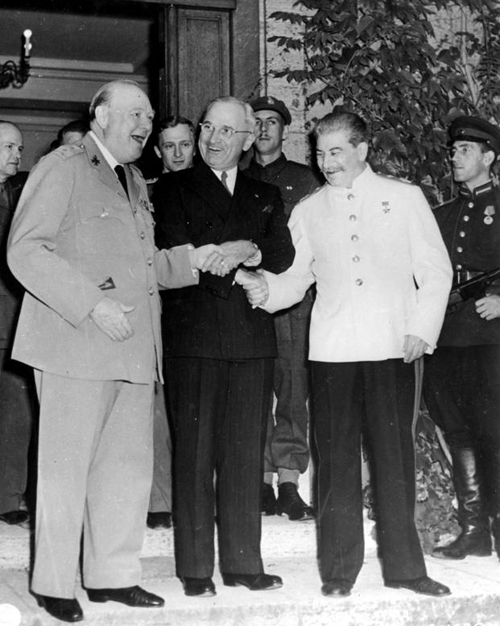
Winston Churchill, Harry Truman and Joseph Stalin, all in good spirits at the 1945 Postdam Conference.
At Potsdam, Harry Truman came into an unfortunate legacy regarding American dealings with the Soviet Union. Walter Duranty, the mendacious apologist for Stalin had advised Roosevelt, as had Joseph E. Davies who wrote an absurd memoir of his ambassadorship in Stalin’s Russia which was then glorified by Warner Brothers in a film version of the book. Both symbolized American policy towards Poland at the Potsdam conference. Simply put, they – and the British for that matter – did not devote interest to Polish matters. Charity would suggest that a country which had lost millions of its citizens, been occupied by two rapacious regimes, and tossed into the Soviet sphere of interest would have elicited a certain guilt-motivated sympathy from the Western Powers. Unfortunately, that proved not to be the case. The Americans – and even more, Churchill – wanted to deprive Poland of bits of land in the west, a threat which brought communist and non-communist Poles into awkward cooperation. Poland had already lost all of its eastern territories: this alone should have moved the West to accede to Polish desiderata in the West. It did not. Churchill, after all, had “betrayed” Poland, as Anita Prażmowska stated in the title of her book, Britain and Poland 1939-1943: The Betrayed Ally, and recompensed his conscience by bullying and ridiculing the Polish government in London. Roosevelt once laughed when Polish territorial issues were being discussed. He gave Truman an unfortunate legacy when he assured his colleagues that Stalin “will not annex anything and will work with me for a world of democracy and peace.” After all, Stalin merited treatment of “noblesse oblige.”
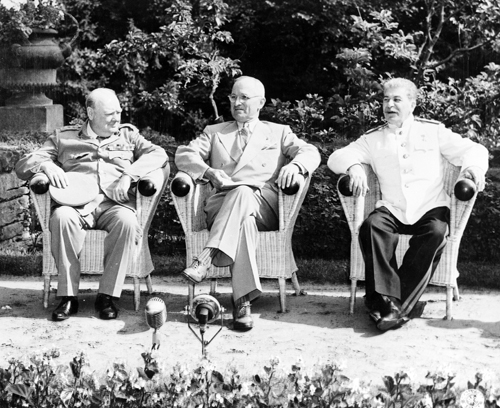
Winston Churchill, Harry S. Truman and Joseph Stalin at Potsdam.
But guilt is not a factor in diplomacy. After all, the British and the Americans had signed the Atlantic Charter which promised much for the post-war world. Its principles were shredded but no prominent American policy maker thought it reasonable to apologize. Indeed, had the Western Powers abided by their own words, Poland would not have been consigned to the Soviets. But we move too fast and with naivité here. After all, if Moscow coveted Polish territory, the Allies would have to had to defend Poland: a principle anathema to the West. We need only look at the woeful American neglect of Poland during the Polish-Soviet War of 1919-1920, the British failure to provide any aid in 1939 Roosevelt’s shameful behavior during the Warsaw Rising of 1944, and the unlikelihood Mr. Putin will confront serious American opposition in the East of Europe. It was not the Allies obligation to fight for Poland, but at the very least, they could have shown a greater sense of decency and expressed some regret that Poland was being surrendered to Russian rapacity. An apology would certainly have been appropriate.
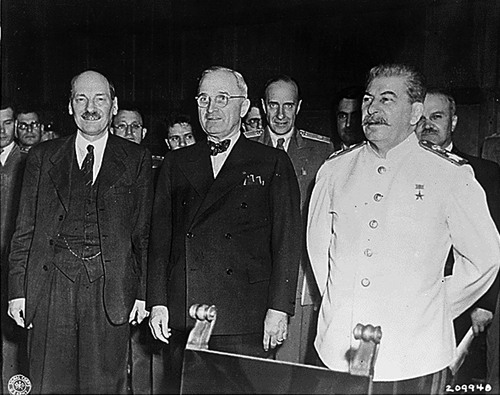
Clement Attlee (who replaced Churchill after the British election), Harry S. Truman, and Joseph Stalin at the 1945 Postdam conference.
But new borders are but one of many Potsdam gifts to Poland. Another was the promise of free elections. Even Stalin admitted that elections were certain to lead to a Communist defeat. Rigged elections were more reliable, and soon forgotten by the West. This was the final gift to Poland at Potsdam. As Freda Bruce Lockhart has cleverly noted: “horrifying… sacrifices had been demanded of Poland to appease not simply Russia, but the allies in their appeasement of Russia.” Potsdam was the final act in the shameful Western acquiescence. For those who argue that standing up to Russian demands against Poland would have led to war – which neither the British nor Americans could contemplate – we may ask where did the West make even an attempt to protect Poland? Nowhere except Roosevelt’s fleeting effort to save Lwów at Yalta, which he quickly abandoned.
But Potsdam had further fine attributes. Poland was excluded from German reparations – it would be given something from the Soviets’ generous share. The Communist “Government of National Unity” was recognized by the Powers. This effectively broke relations with Poland’s legal government-in-exile. No security was to be offered to Poles wishing to return to the homeland: they were to be treated as the Communist authorities thought convenient. Northern East Prussia was given over to the Soviets to create new Russian territory. (I suggest one look at a map to see the care with which the border was drawn.) Polish claims to the territory which contained virtually no Russians were ignored.
Potsdam’s treatment of the Poles cannot be understood in isolation: it was a continuance of the policies proffered by Stalin and eagerly agreed to by Roosevelt and Churchill. At Teheran – November 28-December 1, 1943 – Churchill generously proposed that all of eastern Poland be given to the Soviets; Stalin modestly accepted. The result, by the way, was that Poland became the only state on the winning territory to become smaller after the war. At Yalta in 1945, the Soviets received – without demurral – all the Polish territories they had seized when, in agreement with Germany, they invaded Poland in 1939. This was, somehow, a reflection of what Stalin intended when he said that Poland was a “matter of honor” for the Russians.
Washington, London, or perhaps Moscow was the political center of the war; but the moral capital was Warsaw. The Allies won the war; no more should be said.
CR

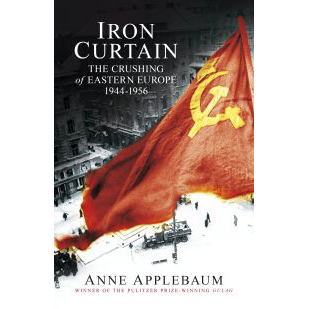
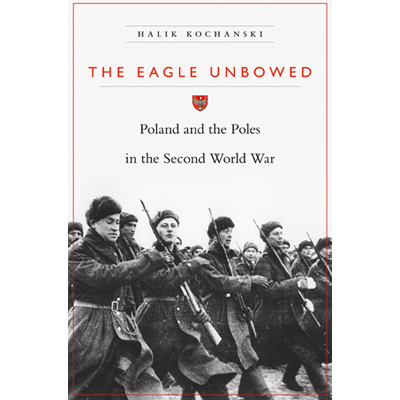
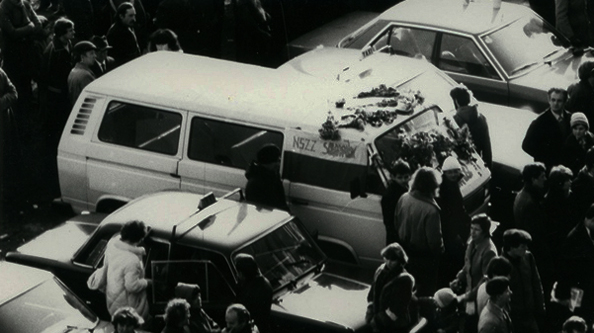
Pingback: Welcome to Fall 2015!